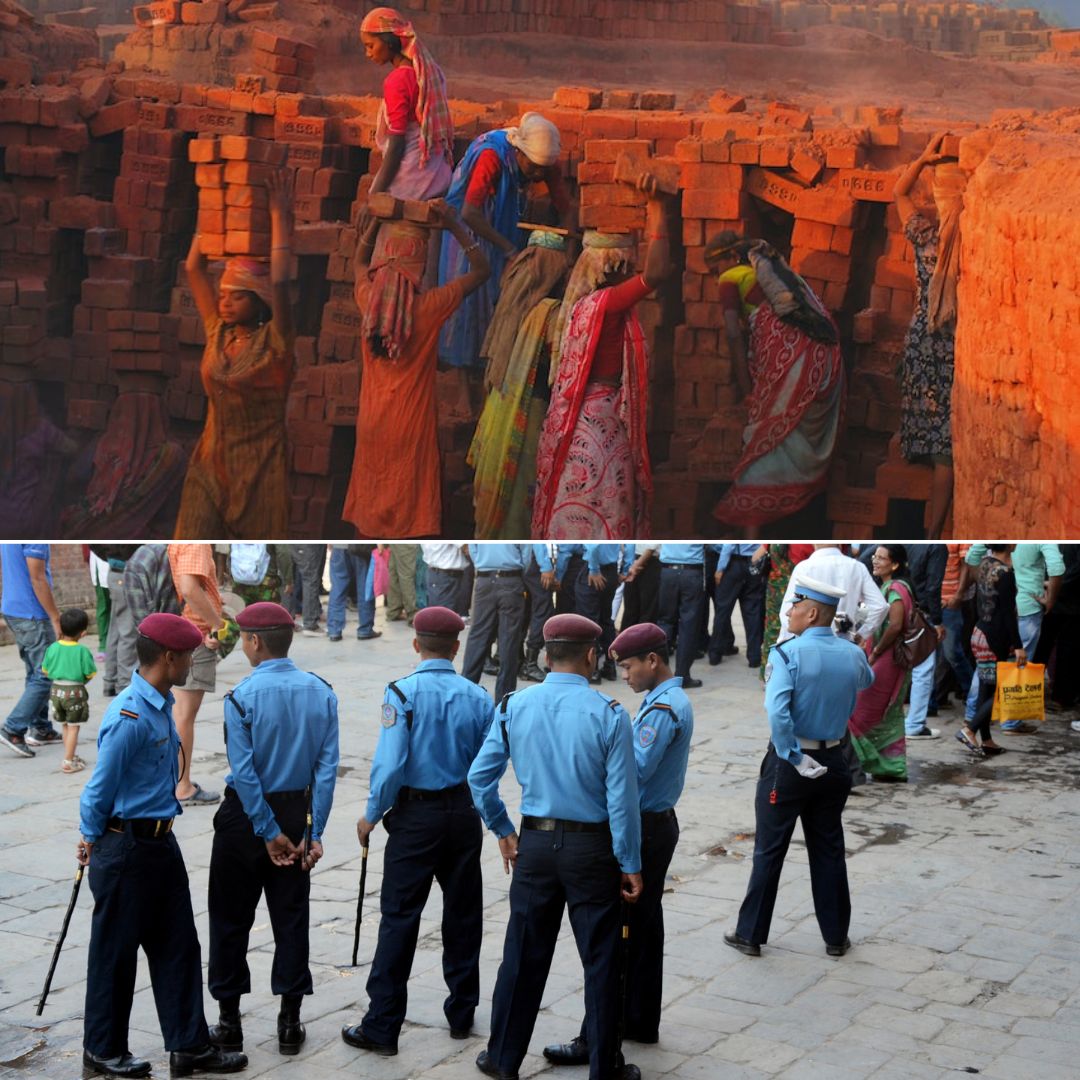Nepal Police Rescues 38 Indians, Including Children & Women Working As Bonded Labourers In Brick Factories
Writer: Laxmi Mohan Kumar
She is an aspiring journalist in the process of learning and unlearning many things. Always up for discussions on everything from popular culture to politics.
Others/World, 12 Nov 2022 8:09 AM GMT
Editor : Shiva Chaudhary |
A post-graduate in Journalism and Mass Communication with relevant skills, specialising in content editing & writing. I believe in the precise dissemination of information based on facts to the public.
Creatives : Laxmi Mohan Kumar
She is an aspiring journalist in the process of learning and unlearning many things. Always up for discussions on everything from popular culture to politics.
According to an official police statement, "A total of 38 Indians working as bonded labourers in the brick factory have been rescued. They all hail from Uttar Pradesh." Earlier in 2013, about 64 Indians, including 27 minors, were rescued.
Debt bondage or bonded labour is a practice that has been prevalent across South-Asian countries for a long. It is a form of slavery where a person pledges their services as a form of security for a debt or other obligation. These services are mostly concentrated around unregulated sectors with no fixed concept of income, safety, or contract. This enables many to exploit the workers and keep the working conditions undefined for their benefit.
According to Anti-Slavery International, bonded labour is commonly seen across agriculture, brick kilns, mills, mines and factories. This modern form of slavery is sometimes passed down along generations where families and children try to repay the debt for decades. In one such recent case of slavery, 38 Indians working as bonded labourers were rescued from a brick factory in Nepal.
Rescued And Taken To Safety
Research studies show that Kiln workers often live in extreme poverty and work in harsh, unsafe conditions that cause severe medical conditions. Most of them who are trapped in bonded labour are not left with many options to switch occupations, and this is particularly the case among those who travel to a different country and get involved in their informal sector.
At least 38 such Indian nationals, including women and children, were found to be working as bonded labourers in a brick factory in Nepal. A rescue mission conducted by the Nepalese authorities at the Rautahat area could crack down upon the network and take the 38 Indians to safety. The district police had received information about a group of Indians being forced to work without their consent at the Aman brick factory in Paroha Municipality of the district.
Initial information conveyed that there were 20 men and 18 children and women hailing from Uttar Pradesh, working as bonded labourers. Based on this information, the police began the search on November 9 and deployed officials to rescue them.
A report by the NDTV quoted the Deputy Superintendent of Police at Rautahat stating, "A total of 38 Indians working as bonded labourers in the brick factory have been rescued. They all hail from Uttar Pradesh." However, police officials have stated that over hundreds of men and women from UP reportedly work in brick factories based in Rautahat alone.
Repeated Incidents Cause Of Worry
The rescued Indians were handed over to the Sashastra Seema Bal, the border guarding force of India deployed at the Nepal and Bhutan borders. The forces at Bairgania in Bihar's Sitamarhi district will examine the case after carrying out the required legal and administrative paperwork. Repeated such incidents have now become a growing cause of concern.
Earlier in 2013 as well, about 64 Indians, including 27 minors working as bonded labourers, were rescued by the authorities in Southern Nepal after receiving directions from the district court. The case was initiated by the Siraha district court, which had directed them as per orders received from the Supreme Court (SC).
The SC, in turn, had acted upon a habeas corpus petition that was filed by one among the bonded labourers, Sewaram of Uttar Pradesh. Back then, many of the workers had complained about the hazardous conditions and irregular payments done in return for their services.
Also Read: Digital Platform Developed To Map Non-Compliant Brick Manufacturing Units To Tackle Air Pollution
 All section
All section















